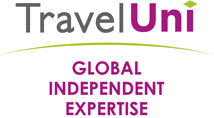This is the second in our series on Consultative Selling in the travel industry
“Consultative Selling is personal selling in which you play the role of a consultant. You assist the buyer in identifying, or clarifying, their needs, and then suggest products that satisfy those needs.”
RAPPORT
‘People buy from people’ is a phrase you will see a lot here because we believe it represents a fundamental truth when selling in the 21st Century.
If the prospective customer (lead) does not like you, for whatever reason, it is unlikely you will make a sale. All purchases, no matter how they might be rationalised, are based on emotion. Simply put, people buy the way you make them feel.
Make them feel good and you increase your chances of making a sale.
You start to make them feel good about you by getting into rapport. This means having a good understanding of them and their needs, and being able to communicate well with them.
A good way to start building rapport is to find some common interest. Of course we do this all the time in our personal lives when we meet new people.
SOCIAL MEDIA AND RAPPORT BUILDING
You can start by finding some common ground like a favourite destination, local football team or last night’s soap cliff-hanger. And what better place to look than social media.
From your research you will have discovered your ideal customers’ preferred social media channel(s) and you need to be there too. This is a great way to get to know them and for them to get to know you. With the knowledge of who your ideal customers are, where they communicate online and their interests you can follow and start up conversations that are relevant to them.
If the preferred Social Media channels change you can change too. It might be Facebook, Twitter, LinkedIn or Instagram today but who knows what innovation is just around the corner. The key is not to focus on the channel but focus on the customer.
SPEAK THE SAME LANGUAGE
You then need to make sure you are on the lead’s wavelength, seeing eye-to-eye and getting a handle on their issues.
We each of us have a unique view of the world and we recreate that world inside our heads using our senses. The main senses we use are sight, hearing and touch, and in different situations we use these senses in different proportions.
The way we use our senses is revealed in the way we speak.
One person might say ‘do you see my point?’ while someone else might say ‘can you grasp that?’. The first speaker is using the sense of sight while the second the sense of touch.
Listen to the words your lead is using and use similar language when you speak (or write) to them.
If they say “I am LOOKING for a holiday” you could say “have you SEEN anything you like in the brochure?”.
If they say “I HEAR it is a good place to go” you could say “does that SOUND the right place for you”.
If they say they want somewhere to relax you could ask if your suggestion “FEELS right”.
In short you are matching their preferred sense of sight, sound or touch.
NON VERBAL COMMUNICATION
The most important part of any communication is not the words we use but the body language and non-verbal communication that accompanies those words. This is just as true if you are on the telephone as face-to-face and, perhaps surprisingly, on email too.
One of the quickest ways to get into rapport with someone face-to-face is to mirror and match their behaviour. To mirror someone is to do what they do as if they were looking in a mirror. Matching is doing what they do in exactly the same way.
It is important not to copy everything. It would probably be noticed (even at a sub conscious level) and the lead will feel uncomfortable. In reality we mirror and match people naturally. The next time you are in a coffee shop take a sneaky look at two people engaged in conversation. If they are in rapport you will see them sitting in a similar way and drinking the coffee at a similar pace. In the photograph above the two people are matching each other: they each have their right hands raised.
EMAIL RAPPORT
Even in an email you can work toward rapport.
You can write using the same senses and you can also match the length of paragraphs. If the lead writes in short paragraphs, you do the same.
BE CURIOUS
Showing a genuine interest in your lead and their holiday will be a great place to start making them feel good about buying a holiday from you. Be curious and ask questions. Never assume that you know what the lead wants until you have been through a process of discovery.
For more hints and tips to help you take your travel industry career to the next level make sure you follow us on Facebook.




